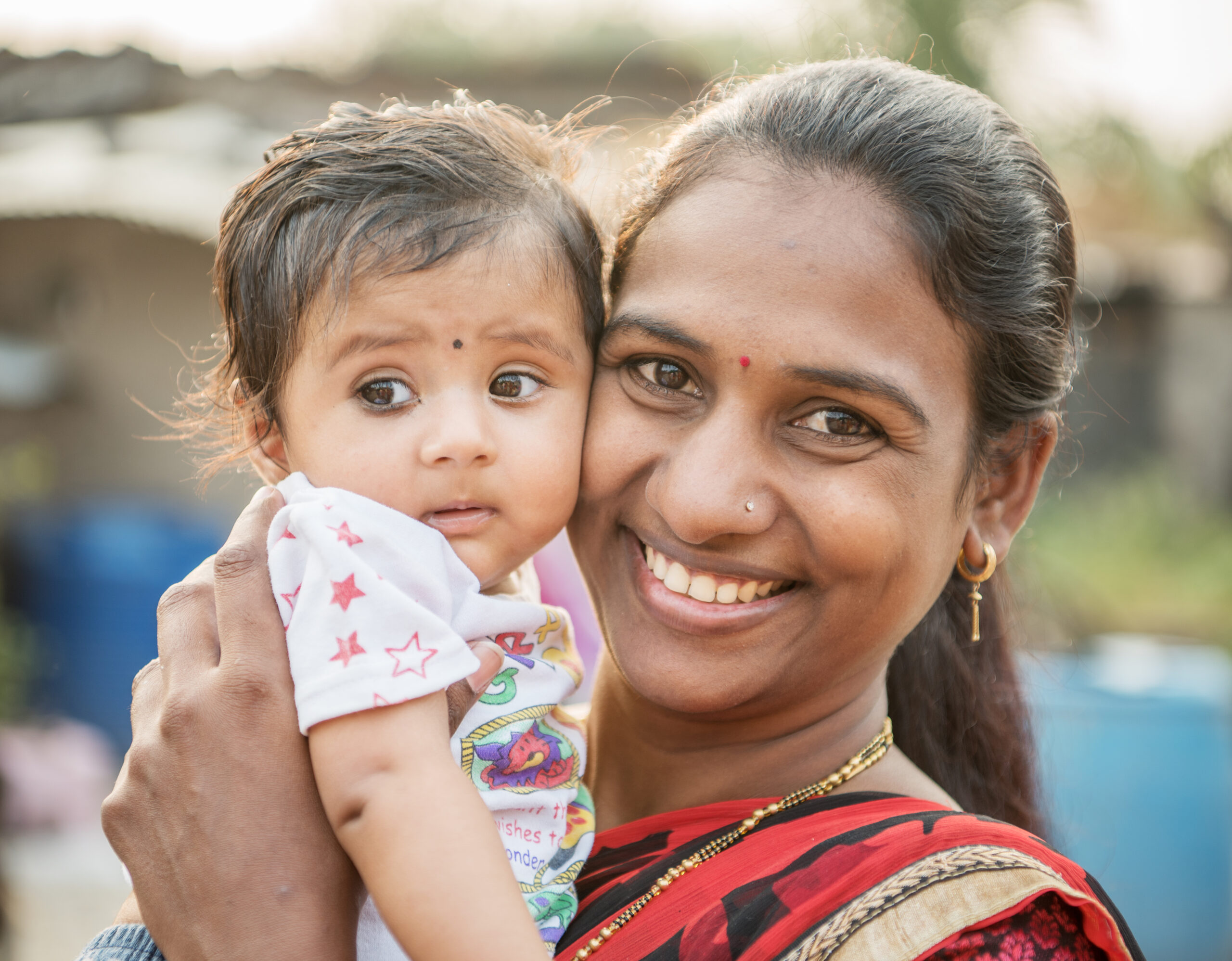Realising Commitment to Family Planning
Realising Commitment to Family Planning (RCFP) is Population Foundation of India’s flagship strategic engagement initiative, advancing family planning as a critical development priority for over a decade. While Phase I (2014 to 2019) focused on strategic engagement with parliamentarians and policymakers to ensure an improved policy environment and increasing fund allocation towards family planning, Phase II (2019 to 2026) strives to sustain and enhance this engagement, mobilising support from policymakers and stakeholders to increase access to quality family planning (FP) services, with a focus on young people and women’s empowerment.
India’s commitments to FP2030 emphasise expanding contraceptive options, ensuring healthy pregnancy spacing, delivering quality services, intensifying Social and Behaviour Change activities, especially targeting young people and women, and increasing CSO engagement and community mobilisation for FP. Population Foundation of India, through the RCFP programme, aims to support and advance these commitments to FP2030 and the SDGs.
Key highlights
Strategic Engagement and Policy Support
- Role in the basket of contraceptive choices: Population Foundation of India has supported the expansion of the basket of contraceptives for over a decade. Injectables were introduced into the public health system in 2016-17, and two new contraceptives—Single Rod Implants and SC-MPA Injectables—regarded as effective long-acting reversible spacing options, were included in 2023.
- Supreme Court Judgement on Sterilization: Population Foundation of India’s fact-finding report, into 2014’s tragic incident involving botched sterilisation deaths in Bilaspur, titled “Robbed of Choice and Dignity: Situational Assessment of Sterilization Camps in Bilaspur District,” contributed to the Supreme Court’s decision to discontinue sterilization camps, improve the quality of care in family planning services and reporting on compliance of Supreme Court’s decision by the state government periodically.
- Recognised as a technical expert and invited to meetings called by various Parliamentary Standing Committees comprised of elected representatives across party lines.
- Established strong partnerships and relationships with key ministries, elected representatives, bureaucrats, professional bodies, research agencies, and most importantly, India’s think tank, the NITI Aayog
- Support in policy formulation: We have contributed to critical policy documents like the section on repositioning family planning for the Government of India’s 12th Five Year Plan (2012-17), NITI Aayog’s 15-year Health Vision for India, draft Health Policy, 2017 by MoHFW, chapter on Male Engagement for the MoHFW’s FP2030 Vision Document
- COVID-19 Policy Guidance: We supported the Ministry of Health and Family Welfare (MoHFW) and WHO India Country Office in formulating policy guidance on COVID-19 vaccination for pregnant women. We also engaged with the MoHFW and convened CSOs to ensure family planning was included among “essential health services” in the government’s COVID-19 guidelines.
- FP2030 Engagement: Population Foundation of India was selected as the CSO focal point for the FP2030 country engagement group, and ensured CSO participation and engagement in FP2030 commitments led by MoHFW.
Research and Evidence Generation
- In 2018, Population Foundation of India commissioned the Cost of Inaction in Family Planning in India: An Analysis of Health and Economic Implications (COI), a study focussing on demographic and health consequences, economic gains from increased FP investments, budgetary savings to the government and savings on out-of-pocket expenditure to households. The study was released in New Delhi in October 2018 by Dr Rajiv Kumar, the then Vice-Chairman of NITI Aayog. Ever since its launch, the study’s findings have been disseminated far and wide and have played a major role in PFI’s strategic engagement efforts.
- Another research study titled Planning, Budgeting and Expenditure of Family Planning under the National Health Mission: A Review was commissioned by PFI to analyse the prevailing trends in budgetary allocations and expenditure by the government for family planning activities. The study covered three Financial Years: 2014-15, 2015-16 and 2016-17 and spanned 18 High Focus Large States, which account for almost 60 percent of the total NHM allocations. The study gives insights into the planning processes, allocations, expenditures and constraints in budgeting and spending for family planning activities.
- In 2017, Population Foundation commissioned a study titled, Costing of Family Planning Methods in India to the Indian School of Business (ISB), Hyderabad. The study aimed to understand the actual costs of delivering family planning services at all levels of facilities. Findings from the study have been used for strategic engagement at the national level, state and district. For programme planners working at the district level, they have been useful in analysing the cost drivers, strategies for optimal utilisation of budgetary allocations, and estimating costs to improve the quality of care.
- Development of knowledge products: Over the years, we have developed a range of knowledge products (position papers, policy briefs, infographics and factsheets) to support our engagement with key stakeholders, such as the policymakers, media, civil society organisations (CSOs), government ministries and departments. These include simplified and visually attractive depiction of data and evidence available in the public domain or derived from studies commissioned by Population Foundation of India.
- Strategic Engagement Handbook: We built the capacity of grassroots CSOs in UP and Bihar to engage with key stakeholders, using its Strategic Engagement Handbook, which offers practical tools for prioritizing family planning in policy discourse. The handbook is available in English and Hindi.
- Family Planning Resource Bank (FPRB): Established a one-stop digital platform hosted on our website to share data, research, and updates on family planning, gender, demographic trends, and sexual and reproductive health (SRH) issues, catering to academics, media, policy influencers, NGOs, and the public.
Leveraging National and International Platforms
- Global Advocacy: Over the years, Population Foundation of India has played a key role in advancing the family planning and sexual reproductive health agenda on key global platforms through its engagements at the International Conference for Family Planning (ICFP), International Conference for Population and Development (CPD), Women Deliver etc. In recent times, we have represented civil society at the 57th session of the Commission on Population and Development (CPD57) in New York and at the 8th International Parliamentarians’ Conference on the Implementation of the International Conference on Population and Development Programme of Action (IPCI/ICPD) in Oslo, Norway.
- G20 Agenda Integration: Developing knowledge products and briefs drawing from India’s experience, we played a key role in integrating population issues into the G20 agenda.
Media Engagement
Media engagement is a vital component of our strategy to ensure population-related discussions uphold an evidence- and empowerment-based perspective. Over the past decade, our strategic media engagements have highlighted key issues like myths around population explosion, adverse effects of a target-driven, sterilization-focused family planning programme, the importance of spacing methods, and the expansion of contraceptive options. Our experts regularly comment and break down key population-related issues in the national and international media, including print, television and new media, with the overall reach going into millions. For instance, in April 2023, when India became world’s most populous country, Population Foundation of India had more than 200 engagements, including in domestic media outlets such as the Indian Express, Times of India, Hindustan Times, NDTV and international ones such as The New York Times, CNN, The Guardian, Le Monde and South China Morning Post, among others. In the past, we used an evidence-based discourse to counter the demands for a coercive two-child policy by dispelling myths and misconceptions around “population explosion” through extensive media engagement and sustained interactions with key stakeholders and thought leaders.


